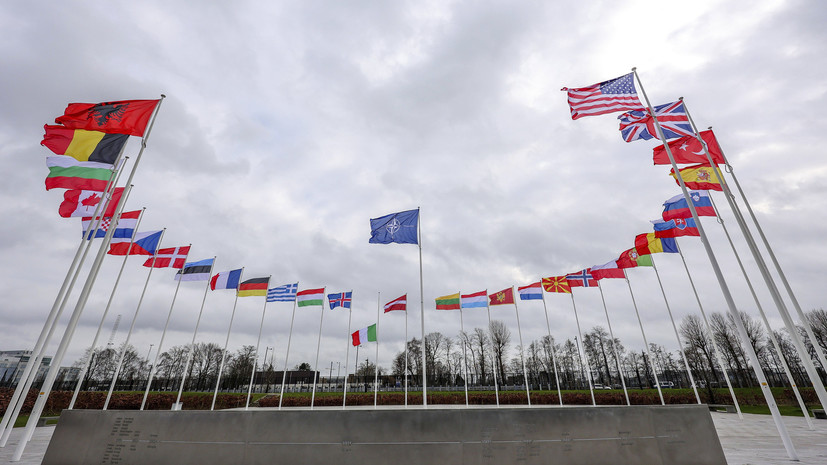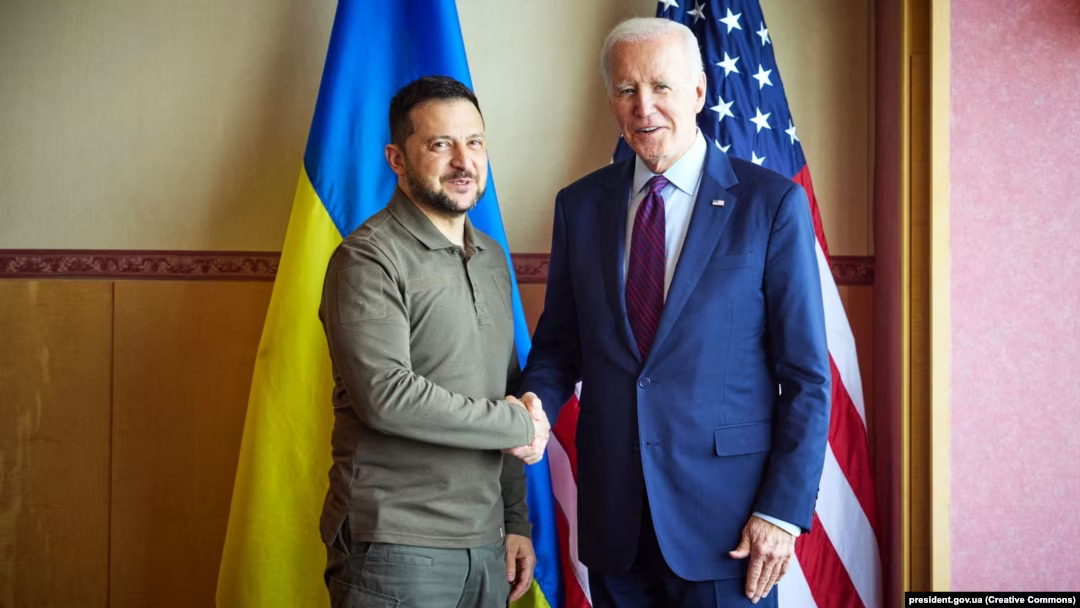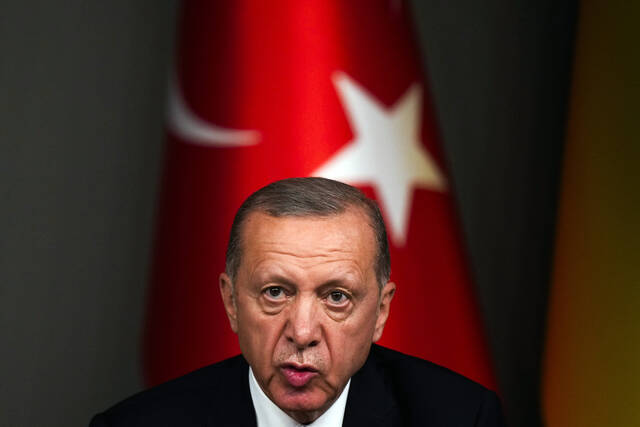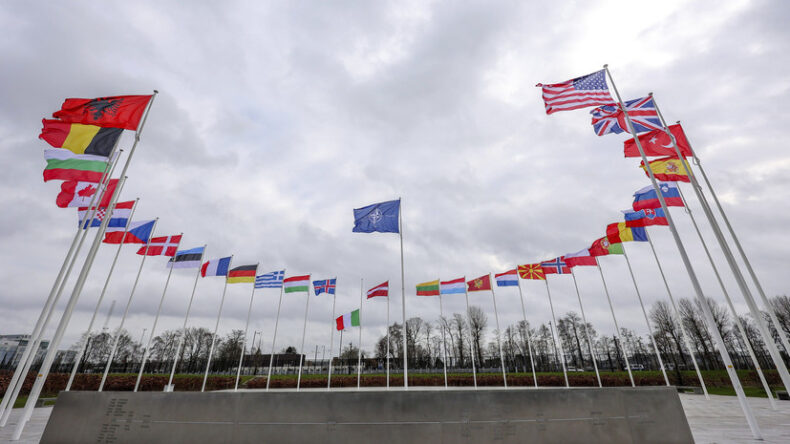NATO leaders are meeting in Lithuania this week for their annual summit at a time when the world’s largest defense alliance is facing fresh tests of its cohesion, with Russia and Ukraine still in a war zone.

NATO is having trouble agreeing to accept Sweden as its 32nd member. Member countries’ military spending falls short of established benchmarks. The present secretary-general’s mandate was forced to be extended by an additional year due to a failure to agree on who should lead NATO going forward.
The most challenging issue would be how to integrate Ukraine into NATO gradually. Some claim that recognizing Ukraine would fulfil a long-standing commitment and be an essential step in preventing Russian aggression in Eastern Europe. Others worry that it would be perceived as a provocative act that could lead to a bigger war.
In an interview with CNN that aired on Sunday, President Joe Biden said, “I don’t think it’s ready for membership in NATO.” He claimed that to join NATO, nations must fulfil all requirements, from democratization to a host of other things.
According to him, the United States ought to give Ukraine the same kind of long-term security assistance that gives Israel—the ability to defend itself.
Arguments among friends are usual, and the current list of disagreements is little compared to earlier worries that Donald Trump might abandon the alliance while president. But the present difficulties occur at a time when Biden and his colleagues are very interested in showing unity among the members.
According to Douglas Lute, the U.S. ambassador to NATO under President Barack Obama, any rift or lack of unity presents a chance for those who would challenge the alliance.
Vladimir Putin, the president of Russia, is ready to take advantage of differences as he battles to advance in Ukraine and deals with domestic political issues, such as the fallout from the Wagner mercenary group’s brief uprising.
By some standards, NATO, which was established at the start of the Cold War as a defence against Moscow, has been revitalized by the conflict in Ukraine. To support Ukraine’s counteroffensive, NATO members have poured military equipment into the country, while Finland broke a long period of nonalignment by joining NATO as its 31st member.
Kentucky Senator and Senate Republican leader Mitch McConnell told The Associated Press, “I think it’s appropriate to look at all the success.” So, contrary to what Putin expected, I believe the invasion has reinforced NATO.
He mentioned the growth in military spending in other nations as well as Germany’s transition to a more robust defence strategy.
The decision to give Ukraine cluster munitions, which Biden described as a difficult choice, was the most recent test of NATO unity. The weapon has been outlawed by more than two-thirds of alliance members due to its history of killing a lot of civilians. The more than 120 nations that have not ratified a convention forbidding the use of the bombs do not include the United States, Russia, or Ukraine.

Regarding Ukraine’s potential membership in NATO, the organization declared in 2008 that Kyiv would eventually join. Since then, not much has been done to move toward that objective. After taking over portions of the country in 2014, Putin attempted to invade the nation’s capital in 2022.
Volodymyr Zelenskyy, the president of Ukraine, urged NATO to send a consistent message to his country regarding membership in the organization.
When asked if he would travel to Vilnius, Zelenskyy responded through a translator that it would be a significant message to convey that NATO is not afraid of Russia. While Ukraine is outside of NATO, it should get unequivocal security guarantees. And that is an extremely crucial topic. Only in these circumstances would our encounter be significant. If not, it’s just more politics.
Instead of adopting the more risky action of formally inviting Ukraine to join NATO, the United States and Germany say that the emphasis should be on providing Ukraine with arms and ammunition. Estonia, Latvia, Lithuania, and Poland, nations that makeup NATO’s Eastern flank, need more concrete guarantees about potential participation.
NATO may opt to strengthen ties with Ukraine by establishing the NATO-Ukraine Council and inviting Kyiv to participate in discussions.
What else is on the agenda of the NATO Summit?
Recep Tayyip Erdogan, the president of Turkey, who is the biggest impediment to Sweden’s and neighbouring Finland’s ambitions to join NATO, will be in the spotlight in Vilnius.
Recently, Sweden modified its anti-terrorism laws and ended its arms embargo against Turkey. However, Erdogan hinted there would be more difficulty when a man burnt a copy of the Quran outside a mosque in Stockholm last week. He compared those who approved of the crime to those who committed it.

The sale of F-16 fighter jets has caused a stalemate between the US and Turkey as well. Erdogan requests the modernized aircraft, but Biden contends that Sweden’s NATO membership must be resolved first. In the AP interview, McConnell stated that he is in favour of selling the fighter jets to Turkey as long as Sweden’s membership is resolved.
Viktor Orban, Hungary’s prime minister, is also delaying his nation’s ratification of Sweden’s admission. Sen. Jim Risch of Idaho, the top Republican on the Senate Foreign Relations Committee, has responded by obstructing a $735 million arms deal between the United States and Hungary.
The summit agenda is unaffected by at least one potentially challenging matter. Members of NATO decided to give Jens Stoltenberg, who has held the position since 2014, a one-year extension rather than try to reach an agreement on a new leader. He has received four extensions.
Most members preferred a woman to be the next secretary-general, and Mette Frederiksen of Denmark had been a front-runner. Poland, however, insisted on a nominee from the Baltic region because there had previously been two consecutive secretaries general from the Nordic region. (The prime ministers of Norway at the time, Stoltenberg, and Denmark at the time, Rasmussen)
Others are wary of accepting a candidate from the Baltics since their leaders frequently take a more confrontational stance against Russia, such as by encouraging Ukraine to join NATO right away.
Over NATO’s revised strategies for fending off any invasion that Russia might launch on allied territory, more disagreements loom.













